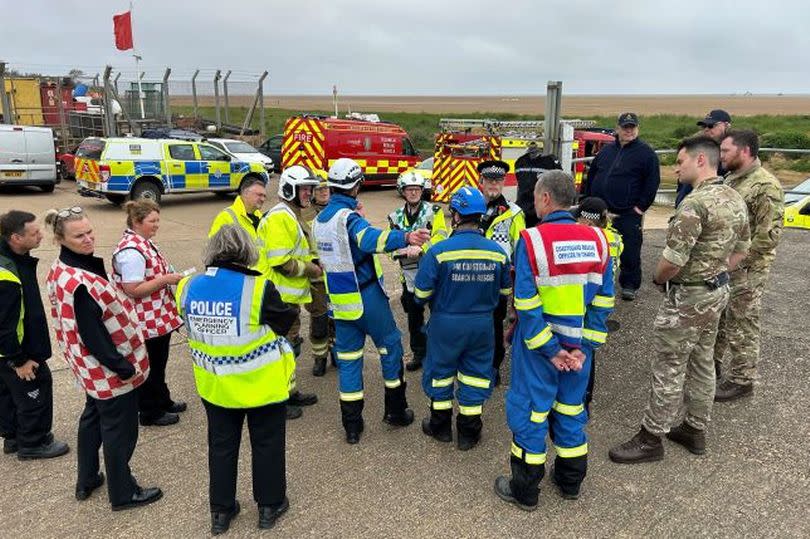RAF Chinook crash simulation takes place at Lincolnshire bases

A multi-agency emergency planning session led by the RAF has helped prepare the county in case of a major incident. On Tuesday, May 21, the participating bodies gathered for the exercise, which simulated the crash of an RAF Chinook with a number of people on board.
The purpose of the exercise, which took place across RAF Coningsby and RAF Donna Nook, was to test the collaboration between multiple agencies at all levels in line with the pivotal Joint Emergency Services Inoperability Principles incident response framework.
Those in the commander seats had to deal with the subsequent fatalities and a large environmental spill in the exercise so it is critical that the agencies can work together to save lives and minimise harm in the event of a crisis or major incident occurring.

Lincolnshire Police had 10 personnel involved in the exercise, with the force's drone team providing a vital link from the operational site to the tactical command site. Other agencies taking part in the exercise included East Midlands Ambulance Service, Lincolnshire Fire & Rescue, Military, Lincolnshire County Council and the Maritime Coastguard Agency.
This exercise was a great opportunity for the force to assess its crash plan and the Joint Emergency Service Interoperability Principles, which was introduced by the Government in 2012. As part of these principles, agencies must be able to co-locate, communicate, co-ordinate, jointly understand risk and have a shared situational awareness.
John Williams, in charge of Lincolnshire Police’s Emergency Planning division, was at RAF Conningsby for the exercise. Reflecting on the day, he said: "The day was an excellent training opportunity and the enthusiasm and professionalism displayed by Lincolnshire Police was exemplary.
"We intentionally give our Commanders very little pre briefing. Emergency Planning adopt the training method of “we possess the skills and experience we have on the day, as if it were a real incident”.
Mr Williams continued: "The one to one debrief afterwards is the opportunity to highlight things that went well and what to consider in the future. The feedback from participants was really positive.
"I am unequivocally confident, that the Officers on Exercise PONDEROSA are now in a far better position to manage a major Incident, than they were before undertaking the experience. Our genuine thanks to the Officers who volunteered and we hope you enjoyed the day and found it thoroughly beneficial.”
Ch Supt Paul Timmins, the Force lead for JESIP at Lincolnshire Police, added: “The tragic events of the Manchester Arena Attack in 2017 and subsequent learning for emergency services have shown that when under pressure and in extreme circumstances the ability of Commanders to command can be inhibited. The need to develop “muscle memory” in command decision-making is at the forefront of emergency planning and exercising.
“It has been recognised that many officers within the Lincolnshire Police force have limited JESIP exposure. After this exercise, an informal debrief to Commanders will be given, which will identify gaps and identify opportunities to fill those gaps – this will provide key development areas to build into the future JESIP training.
“Over the next 12 months we intend to build on our JESIP training by ensuring that every officer from Constable to Inspector across Lincolnshire Police will have effective knowledge around how to operate within JESIP principles.”

 Yahoo News
Yahoo News 
